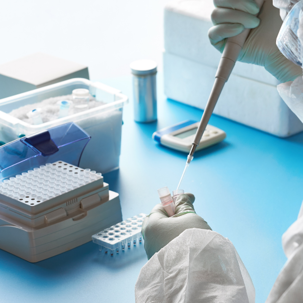The availability of DNA testing has revolutionized forensic science. It has enabled investigators to solve cases related to crimes that happened years earlier, and if not to solve the crimes, at least to get a step closer to solving them. Consider the case of the Somerton Man, a man whose body was found on a beach in Australia in 1948; in 2022, after a comparison of the body’s DNA with that of living relatives of his, the man was identified as Charles Webb, although we still have more questions than answers about the circumstances of his death. Thanks to DNA evidence, many wrongfully convicted people have been able to overturn their convictions, including some who served years in prison for crimes they did not commit. Of course, if a DNA sample in the forensics lab is a match for yours, this is not as much of a slam dunk for the prosecution as you might think. The presence of your DNA in a particular place does not always mean that you committed a crime. Furthermore, forensics labs sometimes make mistakes with DNA samples, just like they do with other types of evidence, such as drugs. A Texas criminal defense lawyer can help you if prosecutors are alleging that DNA evidence connects you to a crime.
Just Because Your DNA Was at the Crime Scene, It Doesn’t Necessarily Mean That You Are Guilty
Prosecutors are sometimes able to persuade a jury that the defendant committed a violent crime, theft, or sex offense because the defendant’s DNA was present at the scene of the alleged crime. When prosecutors assume, and try to persuade jurors to assume, that because the DNA genuinely belongs to the defendant, it must mean that the defendant is guilty. This is called the prosecutor’s fallacy. For example, imagine that a man is facing charges for attempting to sexually assault a woman whom he knew socially. The prosecutors tell the jury that a DNA sample was found on the woman’s jacket, and they claim that this proves that the defendant is guilty.
This DNA match does not, however, prove the defendant’s guilt beyond a reasonable doubt. It is possible for shed skin cells, which contain DNA, to adhere to an object, so the defendant’s DNA could have been present in detectable amounts on the woman’s jacket if he had hugged her goodbye at a social gathering or if she had left her jacket in his car after he gave her a ride somewhere, and he had later returned the jacket. It is also possible that the defendant and the woman engaged in more intimate contact but that it was consensual.
Just Because Your DNA Was in the Crime Lab, It Doesn’t Necessarily Mean That You Are Guilty
It is true that DNA testing can tell one person’s DNA apart from someone else’s with great accuracy; it can tell your DNA apart from your siblings’ DNA, for example. Therefore, “The DNA isn’t mine” is not a very plausible defense. It is very possible, however, that the forensics lab made an error in recording the details of where and when the DNA sample was collected. For example, a man was wrongfully convicted when a forensics lab connected his DNA to a sexual assault case. The defendant was able to overturn his conviction on appeal by presenting evidence that police had collected his DNA a day earlier than the day the sexual assault occurred, and they had collected his DNA in connection to a completely unrelated case.
Contact the Law Office of Patrick J. McLain, PLLC About Criminal Defense Cases
A Dallas criminal defense lawyer can help you understand the role of DNA evidence in your case. Contact the Law Office of Patrick J. McLain, PLLC, in Dallas, Texas, to discuss your case.

